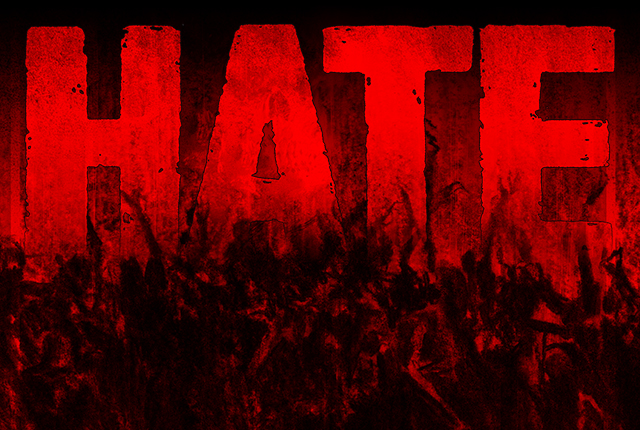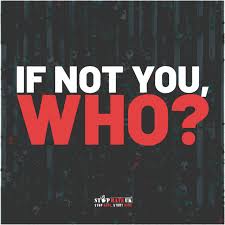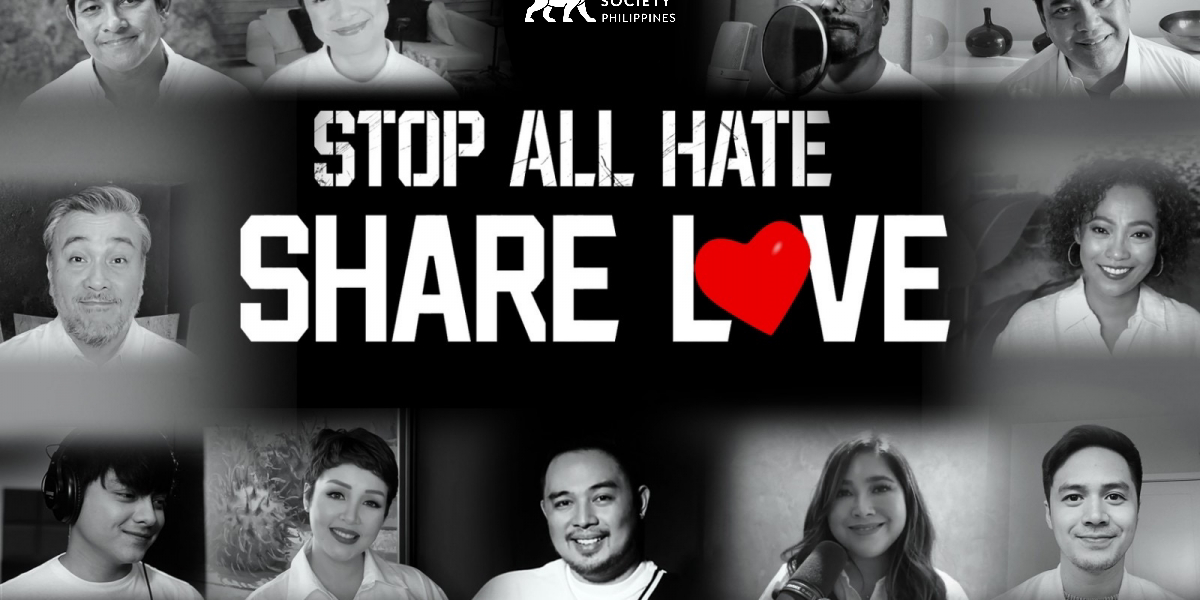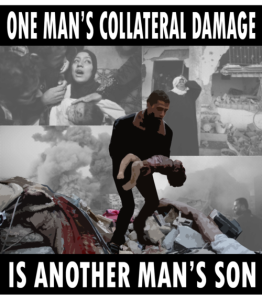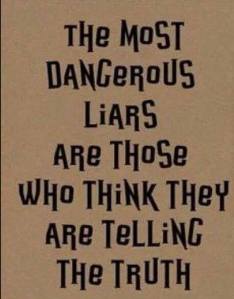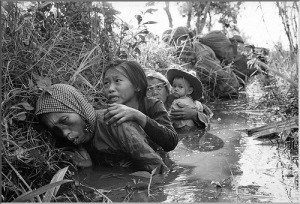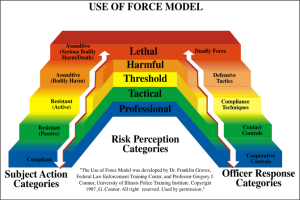 The other is anyone who you do not identify with. It is anyone who is on the other side of the fence. It is anyone who does not belong to your tribe, religion, political party, sports team, demographics, ethnicity, country club, neighborhood, gated community, state, country, or hemisphere. It is someone who looks different than you do. It is someone who thinks differently than you do. It is someone who behaves differently than you do. It is a stranger from a strange land. It is a poor person who needs a handout. It is a rich person who does not have to work hard. It is a very educated person or perhaps a very uneducated person.
The other is anyone who you do not identify with. It is anyone who is on the other side of the fence. It is anyone who does not belong to your tribe, religion, political party, sports team, demographics, ethnicity, country club, neighborhood, gated community, state, country, or hemisphere. It is someone who looks different than you do. It is someone who thinks differently than you do. It is someone who behaves differently than you do. It is a stranger from a strange land. It is a poor person who needs a handout. It is a rich person who does not have to work hard. It is a very educated person or perhaps a very uneducated person.
Other people do not belong. Other people do not understand. Other people do not get it. Other people are often stupid. Other people are often immoral and unethical. Other people are probably evil.
I know these things about other people are true because everybody I know says so. I know they are true because Fox News or CNN said that they were true. I know they are true because my leader said that they were true. I think I read it somewhere so it must be true or else I saw it on TV.
I don’t want to live near other people. I don’t want other people to live near me. I don’t want my kids playing with the children of other people. I don’t want my children growing up thinking like other people.
Why can’t more people be like us? What is wrong with these other people? Do these other people read too much or spend too much time in school or maybe they don’t read enough or don’t spend enough time in school. Where do these other people get these crazy ideas from?
I just wish we could all get along. I try to treat everyone the same, just as long as they are not any of these other people. I have told my kids to be polite and respectful to everyone just as long as they are not any of these other people. My spouse and I always go to Sunday service and we pray for these other people when we are there. One of my favorite prayers is as follows:
Lord, please hear my prayer,
I want to pray for these Other people.
Please help them to see the evil of their ways.
Please help them to find a way to believe in the same God that I do.
Please help them to be more like me.
Lord, if they refuse to repent the evil of their ways,
Could you please strike them dead?
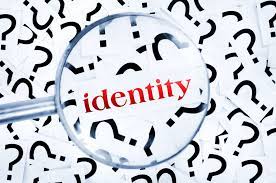 One of my best friends and I were recently discussing the current mania with “Identity.” There has been much talk these past few years over the issue of Identity politics. Identify politics has been defined as:
One of my best friends and I were recently discussing the current mania with “Identity.” There has been much talk these past few years over the issue of Identity politics. Identify politics has been defined as:
“A tendency for people of a particular religion, ethnic group, social background, etc., to form exclusive political alliances, moving away from traditional broad-based party politics.”
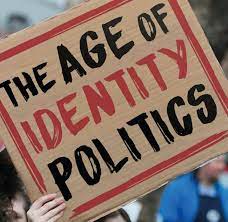 This mania with identity presents a problem in the political arena where compromise has long been a foundation of good government. The concept of Identity has so polarized people that they now view the “other” side as having no validity and even in many cases being EVIL. The problem of Identity has metastasized from the political arena to the wider social arena which includes almost every aspect of life on the planet. I think it is safe to say that Identity has always been at the heart of conflicts since the Tower of Babel and perhaps Adam and Eve. Did Eve feel inferior to Adam and want to one up him? Some recent headlines about the concept of Identity include:
This mania with identity presents a problem in the political arena where compromise has long been a foundation of good government. The concept of Identity has so polarized people that they now view the “other” side as having no validity and even in many cases being EVIL. The problem of Identity has metastasized from the political arena to the wider social arena which includes almost every aspect of life on the planet. I think it is safe to say that Identity has always been at the heart of conflicts since the Tower of Babel and perhaps Adam and Eve. Did Eve feel inferior to Adam and want to one up him? Some recent headlines about the concept of Identity include:
- LGBTQ groups sue over Iowa law banning library books and gender identity discussions
- Stop Identity Attacks: Discover the Key to Early Threat Detection
- Is Buffy Saint-Marie Indigenous? Ancestry Questioned
- How Media, Politics, and Identity Drive Our Appetite for Misinformation
- Israel’s political identity crisis: Right divided, left reevaluating
- Why Democrats Lose When They Play Identity Politics
- Brexit as an Identity: Political Identities and Policy Norms
- How Does Geography Play a Part in Rural Identity and Politics?
- Gender identity and political evil
My friend Bruce is not a naïve person, and he is very well read. He wondered if we could ever get along with others without the need to resort to Identity. Could the Crusaders and Muslims have avoided fighting over which God would be worshipped? Could England and France have settled their differences without the 100 Years War? Could Lee Harvey Oswald have simply written a letter to JFK expressing his disagreements or whatever animosity he had towards Kennedy?
The famous guru and Indian philosopher Osho believed that war could never be eliminated from the planet because of how it was valued by humans. Osho wrote:
“It has never happened. Man has never found peace exciting. It seems that is the way man is, war certainly will remain exciting, because the peace that you know is not the real peace; it is the peace of a cemetery, not the peace of this mandir!” (Note: A mandir is a Hindu temple or place of worship)
We might argue whether Osho is right but consider the many long and frequent wars that have punctuated any peace on this earth. My guess is that most of these wars had to do with Identity. A very important question might be to better understand the role that Identity plays in life and how the negative aspects of this role can be eliminated or at least mitigated. For instance, when we sing school fight songs that extol our virtues over the virtues of our rival schools. Here is the University of Michigan fight song:
Hail! to the victors valiant
Hail! to the conquering heroes
Hail! Hail! to Michigan
The champions of the west
One of the high schools that I substitute at has their mascot as, “The Spartan Warriors.” Their fight song goes:
Bravely, we fight to win the test
Nothing to fear for we are the best
Fight on Spartans to the end
And bring home the victory

Perhaps you find these fight song references trivial but when our young people get a constant never-ending chorus of exhortations to fight on and to fight to the end, it makes me wonder what impact this has on their psyches. Combine this with the fights on cinema and the violent video games and I would argue that the Spartans had nothing on our society when it comes to training their youth for violence and warfare.
 Mark Twain wrote a famous story which he asked not to be published until after his death. The story was called “The War Prayer.” A church service is being held at which several soldiers are getting ready to go off to war. The chaplain has just given a prayer for the soldiers welfare and victory. A stranger enters the church and asks the chaplain to say a few words. Reluctantly the chaplain agrees. The stranger starts off by referring to the war prayer that the chaplain gave to instill morale in the soldiers. The stranger notes that there are really two prayers that have been said. One has been spoken and the second one unspoken. The stranger then says that he will speak what was really asked for in this prayer:
Mark Twain wrote a famous story which he asked not to be published until after his death. The story was called “The War Prayer.” A church service is being held at which several soldiers are getting ready to go off to war. The chaplain has just given a prayer for the soldiers welfare and victory. A stranger enters the church and asks the chaplain to say a few words. Reluctantly the chaplain agrees. The stranger starts off by referring to the war prayer that the chaplain gave to instill morale in the soldiers. The stranger notes that there are really two prayers that have been said. One has been spoken and the second one unspoken. The stranger then says that he will speak what was really asked for in this prayer:
“O Lord our Father, our young patriots, idols of our hearts, go forth to battle — be Thou near them! With them — in spirit — we also go forth from the sweet peace of our beloved firesides to smite the foe. O Lord our God, help us to tear their soldiers to bloody shreds with our shells; help us to cover their smiling fields with the pale forms of their patriot dead; help us to drown the thunder of the guns with the shrieks of their wounded, writhing in pain; help us to lay waste their humble homes with a hurricane of fire; help us to wring the hearts of their unoffending widows with unavailing grief; help us to turn them out roofless with little children to wander unfriended the wastes of their desolated land in rags and hunger and thirst, sports of the sun flames of summer and the icy winds of winter, broken in spirit, worn with travail, imploring Thee for the refuge of the grave and denied it — for our sakes who adore Thee, Lord, blast their hopes, blight their lives, protract their bitter pilgrimage, make heavy their steps, water their way with their tears, stain the white snow with the blood of their wounded feet! We ask it, in the spirit of love, of Him Who is the Source of Love, and Who is the ever-faithful refuge and friend of all that are sore beset and seek His aid with humble and contrite hearts. Amen.”
 We have a world where humans have begun to take war for granted. It is either too easy to do nothing about war as we watch our favorite sports teams fight it out or Osho is right, and we crave the excitement that death and destruction bring to the planet. If we truly want to end war and violence, we must start to see everyone on the planet as a people that we are part of. There must be no “others.” We are all part of one large tribe. Just as the water, soil and air are part of a seamless whole, so is humanity. Benjamin Franklin said, “Either we all hang together, or we all hang separately.” I think we might say something similar for humanity. Either we all live together peacefully, or we shall all die separately apart.”
We have a world where humans have begun to take war for granted. It is either too easy to do nothing about war as we watch our favorite sports teams fight it out or Osho is right, and we crave the excitement that death and destruction bring to the planet. If we truly want to end war and violence, we must start to see everyone on the planet as a people that we are part of. There must be no “others.” We are all part of one large tribe. Just as the water, soil and air are part of a seamless whole, so is humanity. Benjamin Franklin said, “Either we all hang together, or we all hang separately.” I think we might say something similar for humanity. Either we all live together peacefully, or we shall all die separately apart.”
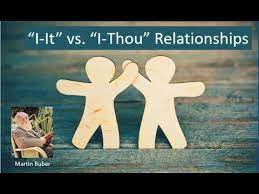
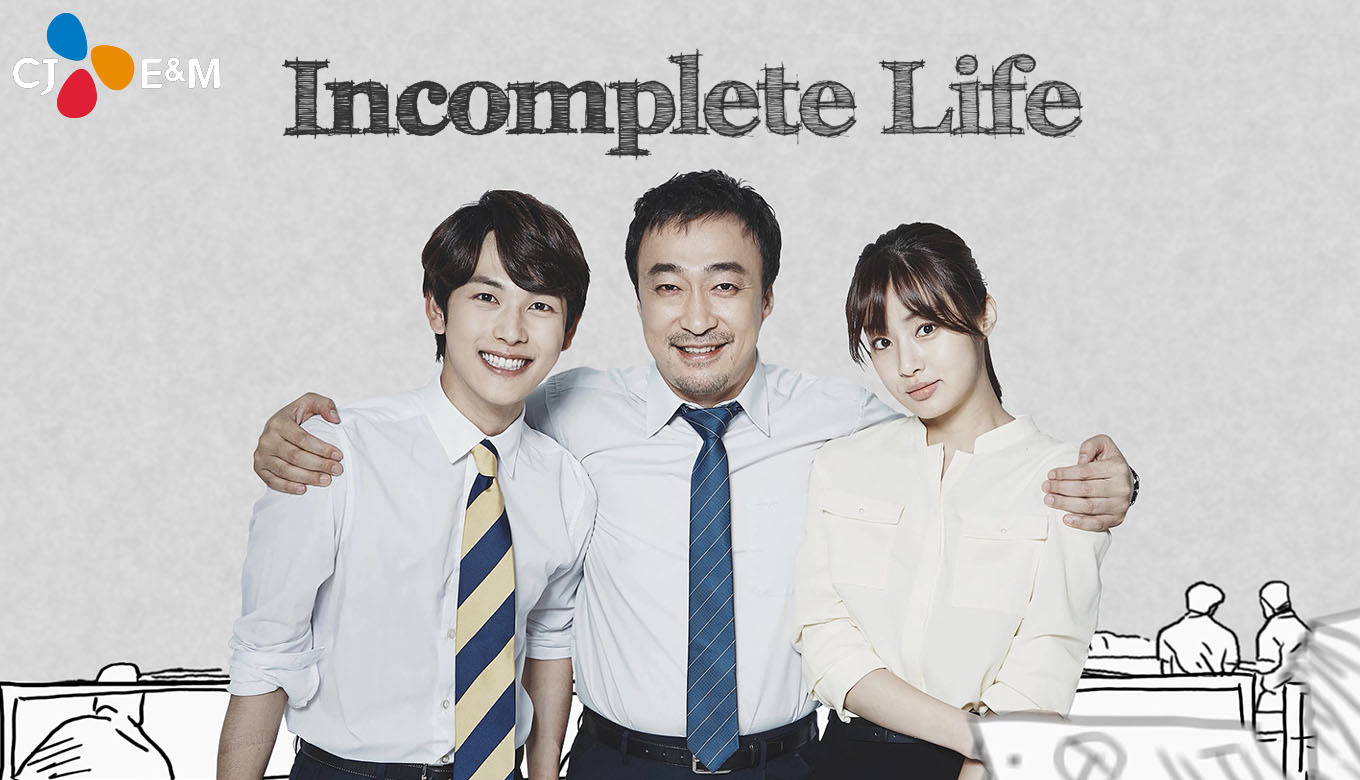
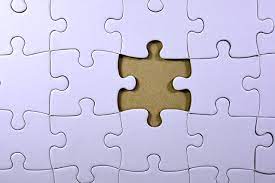 Suffice it to say, I am awestruck by the reply from ChatGPT. She/he might just eliminate the need for many experts including pundits like me, psychiatrists, doctors, lawyers, professors, sociologists, psychologists and even you. I am scratching my head as to what I can add about the subject that ChatGPT did not provide you. I can tell you a story though that ChatGPT cannot concerning a major non-closure in my own life. One episode among many that has left me with regrets. I can also tell you that it is not always easy to get closure on incomplete episodes. Many things can get in the way. Perhaps the primary barriers either being the unwillingness of one party to try or to reciprocate an effort and of course our own egos.
Suffice it to say, I am awestruck by the reply from ChatGPT. She/he might just eliminate the need for many experts including pundits like me, psychiatrists, doctors, lawyers, professors, sociologists, psychologists and even you. I am scratching my head as to what I can add about the subject that ChatGPT did not provide you. I can tell you a story though that ChatGPT cannot concerning a major non-closure in my own life. One episode among many that has left me with regrets. I can also tell you that it is not always easy to get closure on incomplete episodes. Many things can get in the way. Perhaps the primary barriers either being the unwillingness of one party to try or to reciprocate an effort and of course our own egos. few years later, I decided to reach out to him again. You can guess his reaction. He was angry and insulting. I decided to drop my effort. Over the years, we have had some interactions by phone or email but nothing that has substantially reinvigorated our former friendship. I am not sure whether he feels any loss, but I can honestly say that I miss him. He had many good qualities and there were many times that we spent together that I fondly remember. I have been the one over the past few years to try to reach out, but my efforts have gone nowhere. At this point, I have decided that “people change” and that he is not the person that he once was. This is a good excuse or rationale for my letting go and forgetting him. You can no doubt pick many holes in my logic.
few years later, I decided to reach out to him again. You can guess his reaction. He was angry and insulting. I decided to drop my effort. Over the years, we have had some interactions by phone or email but nothing that has substantially reinvigorated our former friendship. I am not sure whether he feels any loss, but I can honestly say that I miss him. He had many good qualities and there were many times that we spent together that I fondly remember. I have been the one over the past few years to try to reach out, but my efforts have gone nowhere. At this point, I have decided that “people change” and that he is not the person that he once was. This is a good excuse or rationale for my letting go and forgetting him. You can no doubt pick many holes in my logic. I could point out that few things worth having ever come easy. The problem is that too many of us grow up today with the fantasy that as the song in My Fair Lady goes, “With a little bit of luck, you can have it all.” I grew up with a phrase that was popular in my neighborhood that went “He got the breaks.” This meant basically that he/she got what they got cause they got lucky. They did not have to work hard. They did not have to practice. They did not have to study. They simply had to get the “Breaks.” It took me years to realize the fallacy in thinking that luck has much to do with what one gets in life. Two of my now favorites quotes are:
I could point out that few things worth having ever come easy. The problem is that too many of us grow up today with the fantasy that as the song in My Fair Lady goes, “With a little bit of luck, you can have it all.” I grew up with a phrase that was popular in my neighborhood that went “He got the breaks.” This meant basically that he/she got what they got cause they got lucky. They did not have to work hard. They did not have to practice. They did not have to study. They simply had to get the “Breaks.” It took me years to realize the fallacy in thinking that luck has much to do with what one gets in life. Two of my now favorites quotes are: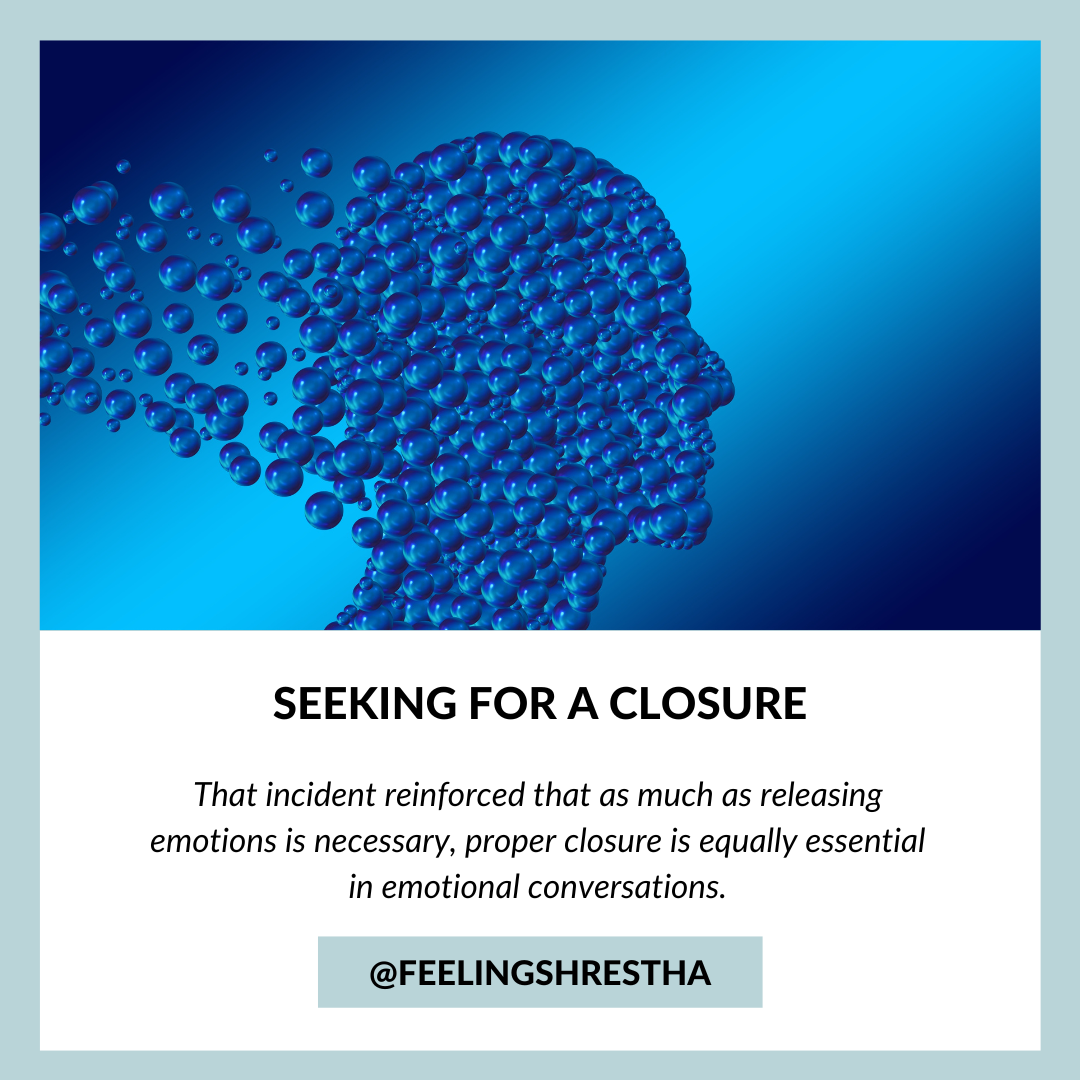 A life without closures will be a life not really lived well. The more closures we can accomplish, the more satisfying our lives will be. Perhaps only a life lived with closures can be a life lived without regrets. We will all have regrets in our lives. Our incomplete episodes are links in a chain that we forge as we go through life. A key question is “how long do we want our chain to be?” The more effort we make to complete these episodes, the shorter our chain will be, and I think the happier our lives will be. Look at the incomplete episodes in your life today. Which ones still cause you heartache and regrets. Is it too late to do anything about them? Would it be worth the effort? What would it cost you to try?
A life without closures will be a life not really lived well. The more closures we can accomplish, the more satisfying our lives will be. Perhaps only a life lived with closures can be a life lived without regrets. We will all have regrets in our lives. Our incomplete episodes are links in a chain that we forge as we go through life. A key question is “how long do we want our chain to be?” The more effort we make to complete these episodes, the shorter our chain will be, and I think the happier our lives will be. Look at the incomplete episodes in your life today. Which ones still cause you heartache and regrets. Is it too late to do anything about them? Would it be worth the effort? What would it cost you to try?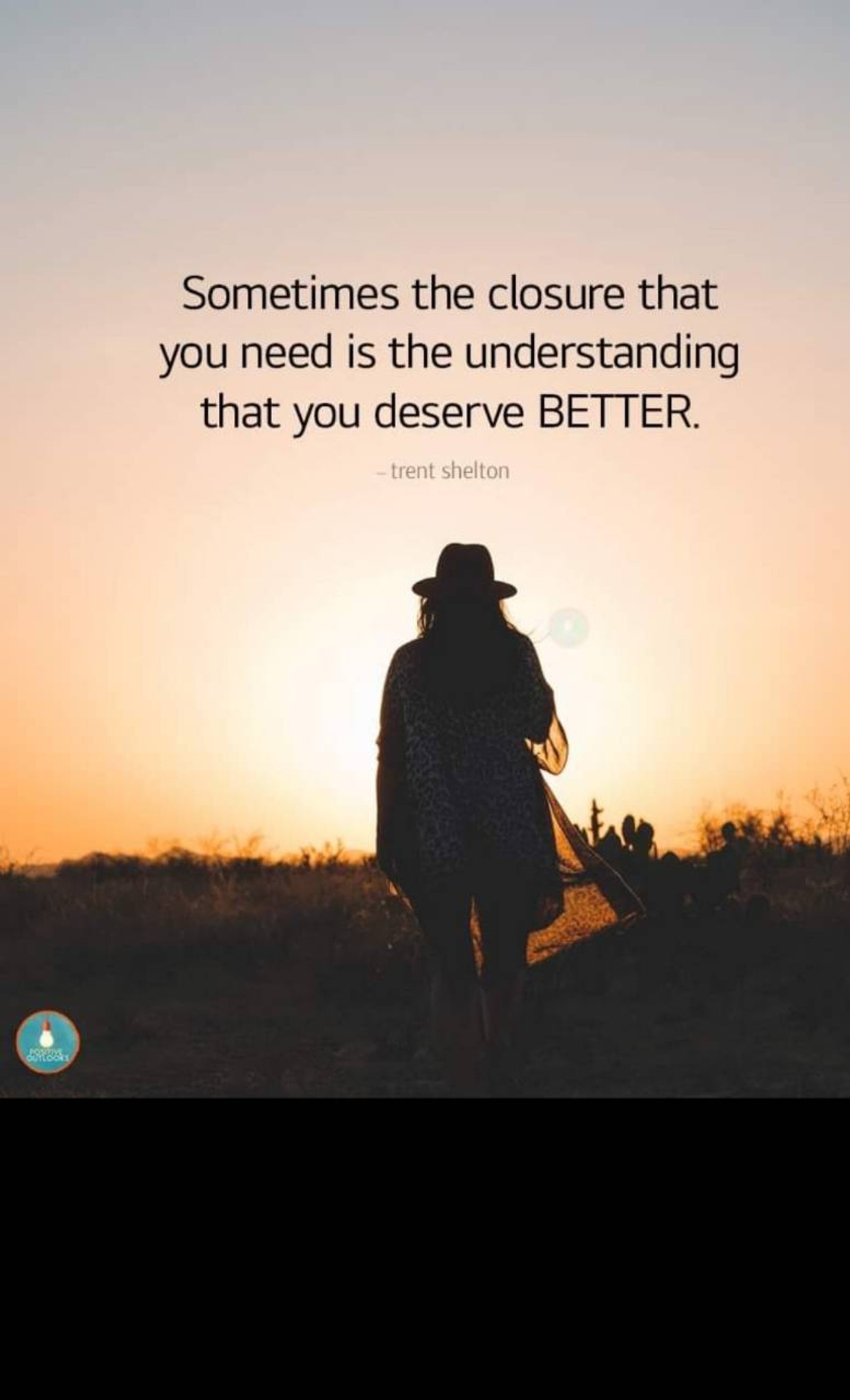
 Holiday time or Holy-Day time? Each holiday season, I wonder what time people are really celebrating. Christmas becomes X-Mass. Holy-days become holidays. Days of remembrance become good days to host a backyard barbecue and Thanksgiving simply becomes the springboard to “the shopping season.” The big kickoff being “Black Friday.” Where is our soul? Where is the spirit in our natures? Is time off meant to be simply another day to watch the “big game.” Are holy-days meant to be spent shopping? Is Black Friday now the most important day of the year? Is Santa Claus a Good Christian because he gives toys to tots? Was that Jesus Christ’s message, to spend Christmas roasting chestnuts round an open fire singing Jingle Bell Rock?
Holiday time or Holy-Day time? Each holiday season, I wonder what time people are really celebrating. Christmas becomes X-Mass. Holy-days become holidays. Days of remembrance become good days to host a backyard barbecue and Thanksgiving simply becomes the springboard to “the shopping season.” The big kickoff being “Black Friday.” Where is our soul? Where is the spirit in our natures? Is time off meant to be simply another day to watch the “big game.” Are holy-days meant to be spent shopping? Is Black Friday now the most important day of the year? Is Santa Claus a Good Christian because he gives toys to tots? Was that Jesus Christ’s message, to spend Christmas roasting chestnuts round an open fire singing Jingle Bell Rock? Please note, it is not my intention to sound like the Grinch or to “cast stones” at others. We all need time to relax and we all need time for fun and games. However, when do we say enough? What about the meaning of the time that we are granted? Do we simply see our time off as a holiday or do we embrace this gift of time to remember our dead, our veterans, our special leaders and those that helped pave the way for the lives that we can live today. These “holidays” we are given each year, whether in remembrance of a religious or civic event should not pass by without our taking the time to remember what their true meaning is.
Please note, it is not my intention to sound like the Grinch or to “cast stones” at others. We all need time to relax and we all need time for fun and games. However, when do we say enough? What about the meaning of the time that we are granted? Do we simply see our time off as a holiday or do we embrace this gift of time to remember our dead, our veterans, our special leaders and those that helped pave the way for the lives that we can live today. These “holidays” we are given each year, whether in remembrance of a religious or civic event should not pass by without our taking the time to remember what their true meaning is. I have so much but I am continually looking at people that are more successful, make more money, have more friends and are in better condition. Yet once I pause for just a few seconds to reflect on my blessings, I realize that I have the greatest wife in the world and I am healthy and moderately well off. I have six happy and wonderful grandchildren. I have more friends than I have time to spend with. In short, I have nothing to complain about. I have nothing to be selfish or greedy or jealous about. I have been blessed with a wonderful life and yet I hardly ever stop to say “thank you God for what you have given me.” I am usually too worried about what I have not been given.
I have so much but I am continually looking at people that are more successful, make more money, have more friends and are in better condition. Yet once I pause for just a few seconds to reflect on my blessings, I realize that I have the greatest wife in the world and I am healthy and moderately well off. I have six happy and wonderful grandchildren. I have more friends than I have time to spend with. In short, I have nothing to complain about. I have nothing to be selfish or greedy or jealous about. I have been blessed with a wonderful life and yet I hardly ever stop to say “thank you God for what you have given me.” I am usually too worried about what I have not been given.

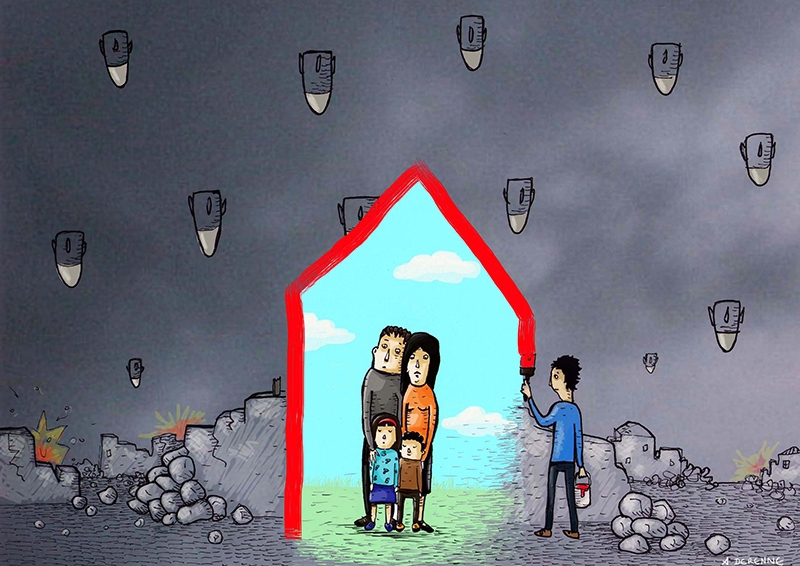
 Two thousand years ago, the Roman Empire started its decline after having been the greatest empire that the world had yet seen. Many historians point to the decadence of the Roman Empire during its decline. “Decadence” is defined by the Oxford On-Line Dictionary as, “Moral or cultural decline as characterized by excessive indulgence in pleasure or luxury.” The Romans had their “Bread and Circuses.” The Oxford Dictionary defines “Bread and Circuses” as, “A diet of entertainment or political policies on which the masses are fed to keep them happy and docile.” For many, football and politics are the bread and circuses or our American Empire. I think the rot and decay in America today goes much deeper than that. Here is my list of some of the decadence that I see in the USA today:
Two thousand years ago, the Roman Empire started its decline after having been the greatest empire that the world had yet seen. Many historians point to the decadence of the Roman Empire during its decline. “Decadence” is defined by the Oxford On-Line Dictionary as, “Moral or cultural decline as characterized by excessive indulgence in pleasure or luxury.” The Romans had their “Bread and Circuses.” The Oxford Dictionary defines “Bread and Circuses” as, “A diet of entertainment or political policies on which the masses are fed to keep them happy and docile.” For many, football and politics are the bread and circuses or our American Empire. I think the rot and decay in America today goes much deeper than that. Here is my list of some of the decadence that I see in the USA today: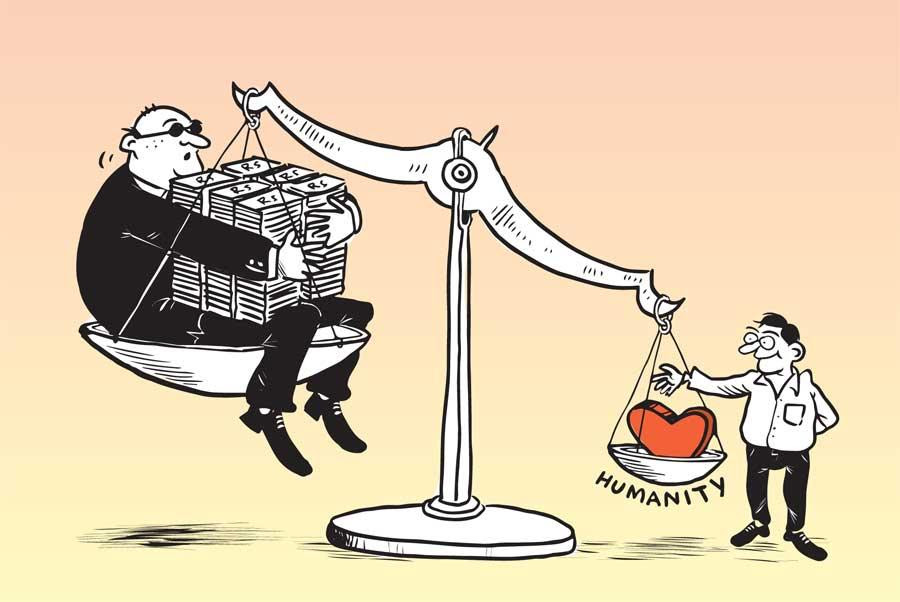
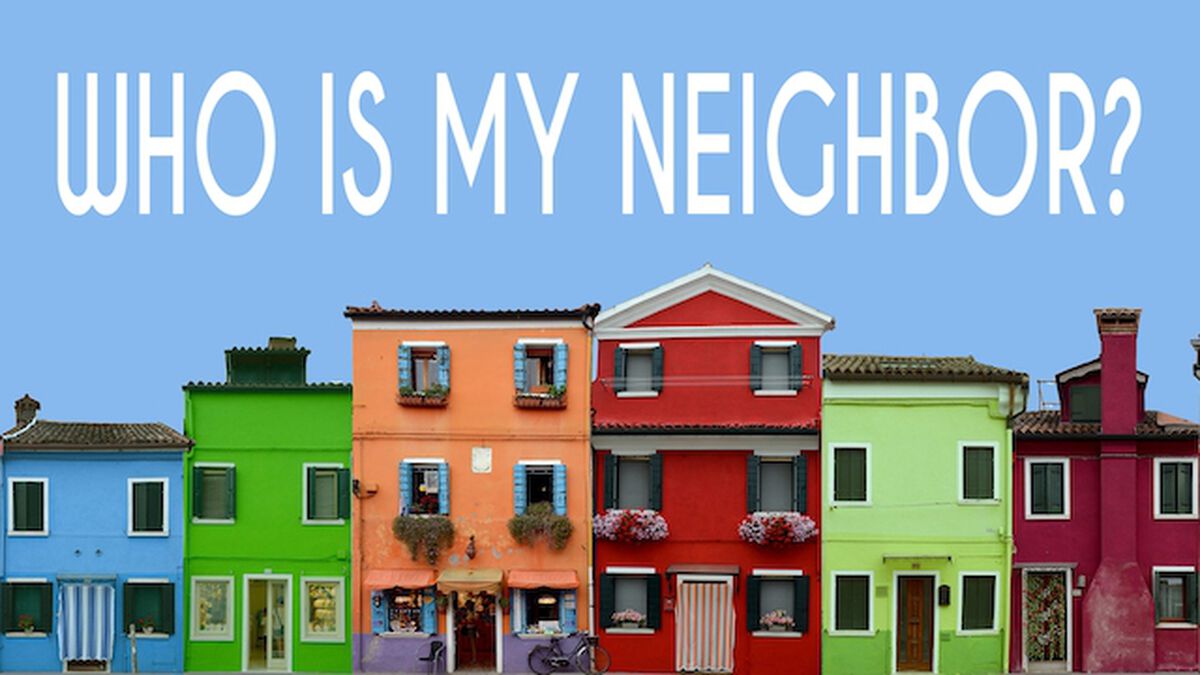
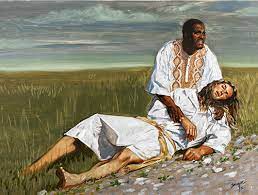 I have another T-Shirt where I list the “No Exceptions” groups that somehow seem to be conveniently overlooked by many Cultural Christians. The major fallacy that many Christians seem to observe is to define their neighbors as either someone in their own church or in their own social group. When Jesus included the Samaritans who were an outcast group at the time as his neighbors, this should have made it clear that you must go beyond your tribe or friends to include other nations, other ethnicities, other religions, and other people with different beliefs as your neighbor.
I have another T-Shirt where I list the “No Exceptions” groups that somehow seem to be conveniently overlooked by many Cultural Christians. The major fallacy that many Christians seem to observe is to define their neighbors as either someone in their own church or in their own social group. When Jesus included the Samaritans who were an outcast group at the time as his neighbors, this should have made it clear that you must go beyond your tribe or friends to include other nations, other ethnicities, other religions, and other people with different beliefs as your neighbor.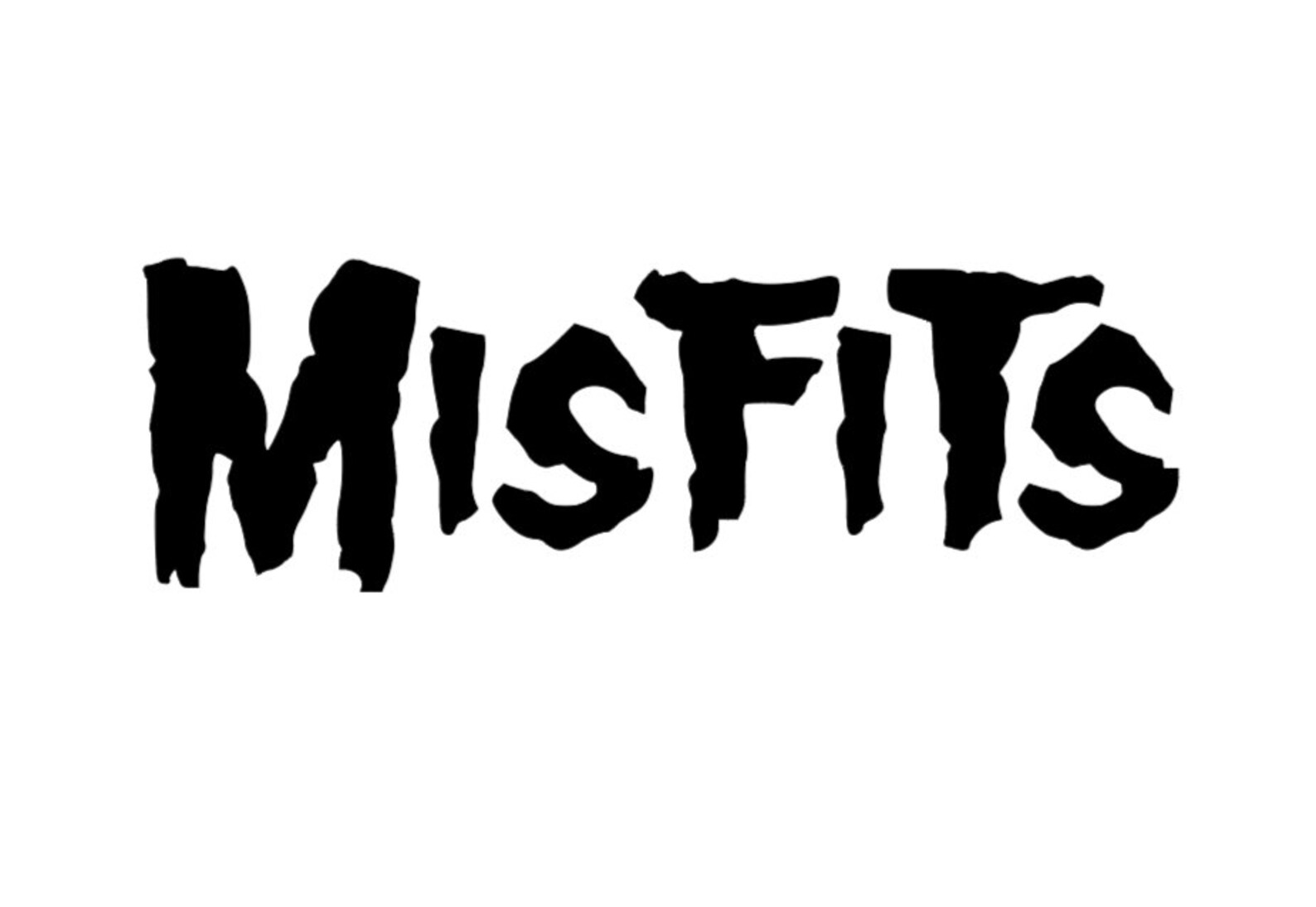 I heard this story from the Pastor at my wife’s church this past Sunday. It was the day after Veterans Day, and it brought tears to my eyes. I am not sure where the story is from but it will touch the heart.
I heard this story from the Pastor at my wife’s church this past Sunday. It was the day after Veterans Day, and it brought tears to my eyes. I am not sure where the story is from but it will touch the heart.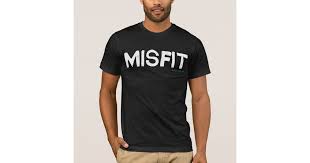 During high school, he was bullied by the other boys who saw his lack of sports prowess as being girly. He could not throw a ball or catch a ball. He did not excel in any studies, and no one cared whether he joined any campus groups. The young man could not wait to get out of high school. He felt like a misfit there as well as at home. Once he graduated, both parents were hoping he would leave home as soon as possible. His dad suggested that he join the army and took him down to the enlistment office.
During high school, he was bullied by the other boys who saw his lack of sports prowess as being girly. He could not throw a ball or catch a ball. He did not excel in any studies, and no one cared whether he joined any campus groups. The young man could not wait to get out of high school. He felt like a misfit there as well as at home. Once he graduated, both parents were hoping he would leave home as soon as possible. His dad suggested that he join the army and took him down to the enlistment office. The other recruits merely shrugged their shoulders and off they trudged in some sort of order to the barber, uniform supply office, medical office, chow hall and then their assigned barracks. Along the way, being laughed at by other recruits who had already been in basic training for a week or so. Shouts were heard that they would never make it and they would be sorry they joined. The more this hazing went on the more worried our young man became. He finally went up to his Drill Instructor (DI) and told him that he did not feel very good. This did not sit well with his DI who singled him out for some abusive name calling. He shamed him as a sissy and weakling in front of his entire platoon. Our young man began to feel like a misfit again and like he did not belong in the US Army.
The other recruits merely shrugged their shoulders and off they trudged in some sort of order to the barber, uniform supply office, medical office, chow hall and then their assigned barracks. Along the way, being laughed at by other recruits who had already been in basic training for a week or so. Shouts were heard that they would never make it and they would be sorry they joined. The more this hazing went on the more worried our young man became. He finally went up to his Drill Instructor (DI) and told him that he did not feel very good. This did not sit well with his DI who singled him out for some abusive name calling. He shamed him as a sissy and weakling in front of his entire platoon. Our young man began to feel like a misfit again and like he did not belong in the US Army.

